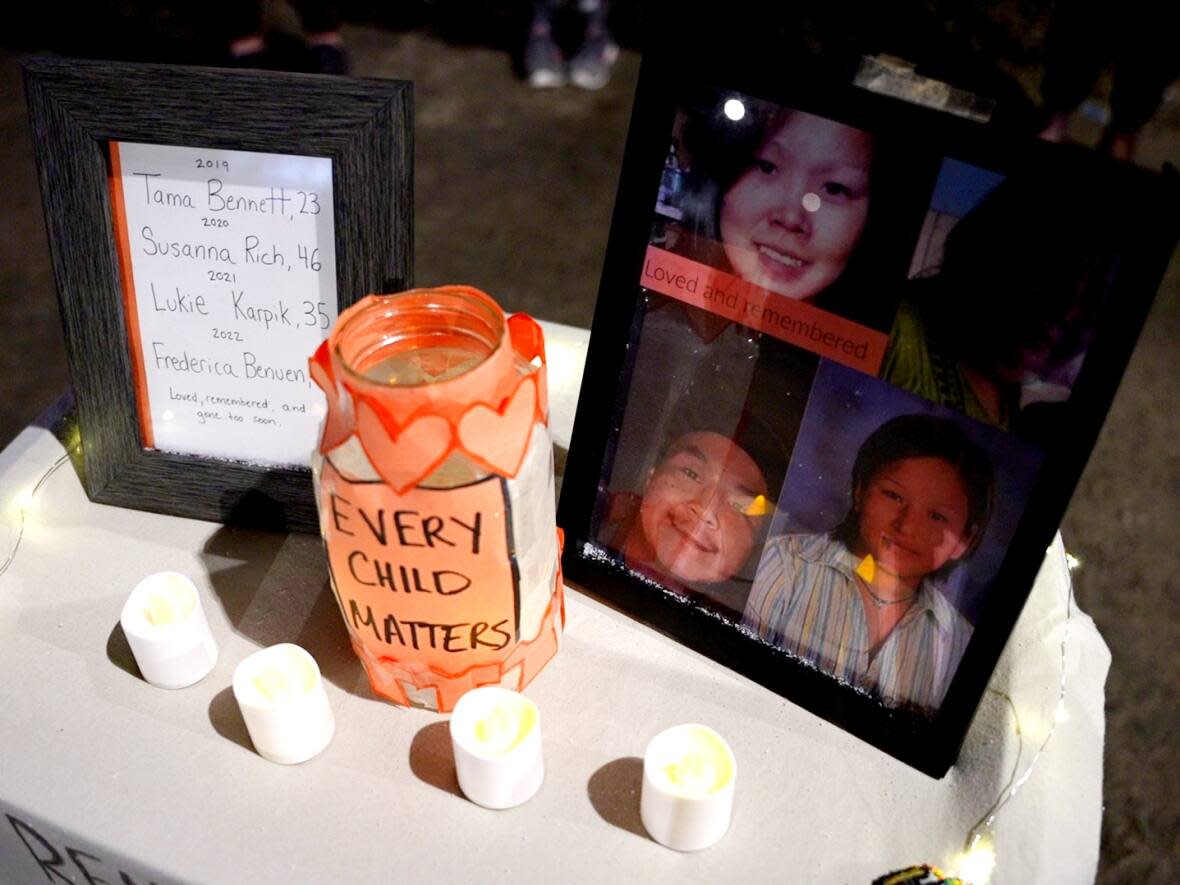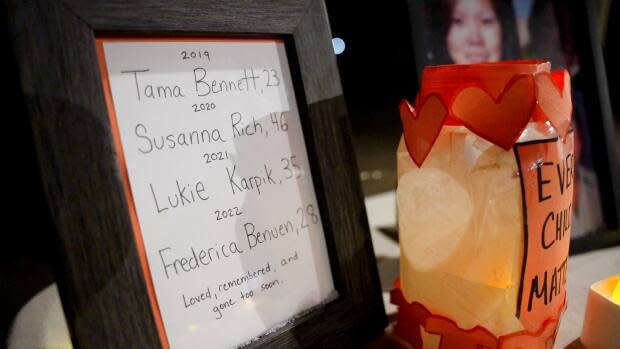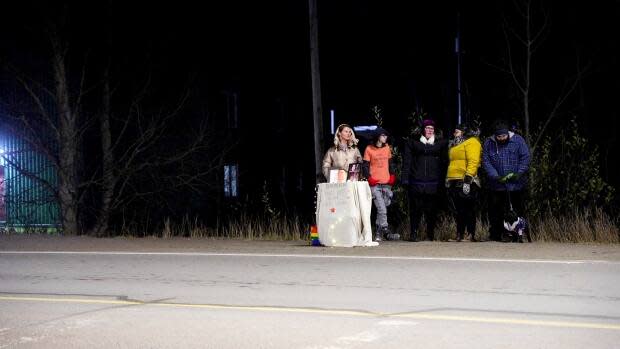As debate simmers over Happy Valley-Goose Bay's transient population, vigil remembers those who have died

As residents of Happy Valley-Goose Bay call for more policing and social services to address a growing transient population, the organizer of a recent candlelight vigil say an important voice hasn't been heard: the people who are living on the trails themselves.
On Thursday, five people gathered outside the town hall to remember those who have died while living on the trail system of the central Labrador town.
The group lit candles around framed photographs of Lukie Karpik, Frederica Benuen, Susanna Rich-Poker and Tama Bennett — all of whom died while living on the town's walking and snowmobile trails system, called "the trails," since 2019. In recent years, Maurice Penashue, in 2015, and Tommy Paul, in 2020, have died on the trails.
"I think it's important to remember the lives that were lost or remember the individuals and keep that face," organizer Jade Rachwal said.
"A lot of times these discussions are really kind of removed from the people that were losing and just reminding the broader community that these were real people who were lost. So we don't think of this as some nameless, faceless thing."
The vigil followed a larger rally Thursday afternoon, when about 40 people outside town hall called for increased policing and better social services to combat what they called a public safety crisis in the community. The mayor estimates 80 people are living on the trails.

Rachwal said the perspective of those living on the trails hasn't been heard enough in the public discourse and media reports about the fears of homeowners and business owners.
Amy Norman, one of the people at the vigil, said people living in the trails often don't have the same capacity to have their voices heard as homeowners and business owners do.
"They're busy surviving, like they have to take care of themselves," said Norman. "They're so busy in survival mode that they might not have time to make a counter rally."

Norman said there aren't easy answers to the problems.
"It's tragic and it's unnecessary," Norman said. "I feel like any time winter approaches, it gets scarier and scarier because we lose people every year."

While rallies in Happy Valley-Goose Bay have called for increased policing, Norman said the RCMP are not the solution because Indigenous people and racialized people in general are overpoliced already. She said she'd rather see concrete actions taken by the provincial government.
"How many more meetings do we need to have before these deaths stop?" Norman said.
Attendee Martina Lavallee said the RCMP should look at community roles, such as the indigenous liaison officer position that was once assigned to the town. The Nunatsiavut government has also asked that the position be reinstated, and Jennifer Ebert, assistant commissioner and commanding officer for the RCMP in Newfoundland and Labrador, has said the force is considering it.
"It will take our whole community to come together and find a solution," said Misha Liman, one of the women at the vigil. "And I understand that a lot of people are in fear for their children and their property but … the losses of the other side are much more severe.
"And I probably shouldn't use that word 'other side' because we need to stop seeing this as us versus them."


